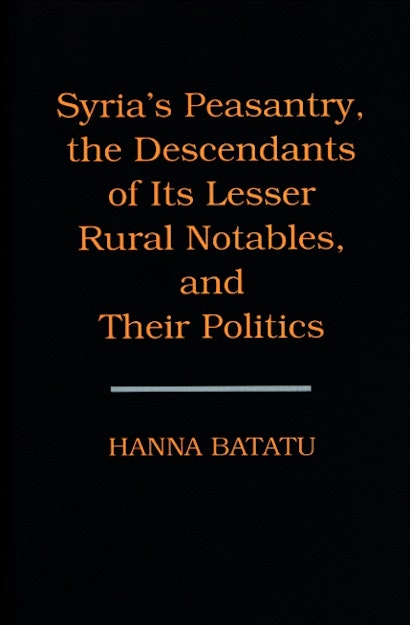Syria's Peasantry, the Descendants of Its Lesser Rural Notables, and Their Politics


Hardcover
- Price:
- $125.00/£105.00
- ISBN:
- Published:
- Jul 21, 1999
- Copyright:
- 1999
- Pages:
- 432
- Size:
- 6 x 9.25 in.
- 56 tables
ebook
In this book, the distinguished scholar Hanna Batatu presents a comprehensive analysis of the recent social, economic, and political evolution of Syria’s peasantry, the segment of society from which the current holders of political power stem. Batatu focuses mainly on the twentieth century and, in particular, on the Ba`th movement, the structures of power after the military coup d’état of 1963, and the era of îvfiz al-Asad, Syria’s first ruler of peasant extraction. Without seeking to prove any single theory about Syrian life, he offers a uniquely rich and detailed account of how power was transferred from one demographic group to another and how that power is maintained today.
Batatu begins by examining social differences among Syria’s peasants and the evolution of their mode of life and economic circumstances. He then scrutinizes the peasants’ forms of consciousness, organization, and behavior in Ottoman and Mandate times and prior to the Ba`thists’ rise to power. He explores the rural aspects of Ba`thism and shows that it was not a single force but a plurality of interrelated groups—prominent among them the descendants of the lesser rural notables—with different social goals and mental horizons. The book also provides a perceptive account of President Asad, his personality and conduct, and the characteristics and power structures of his regime. Batatu draws throughout on a wide range of socioeconomic and biographical information and on personal interviews with Syrian peasants and political leaders, offering invaluable insights into the complexities of a country and a regime that have long been poorly understood by outsiders.